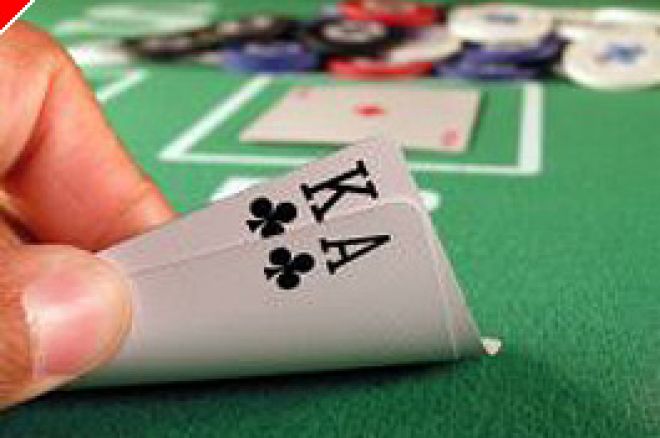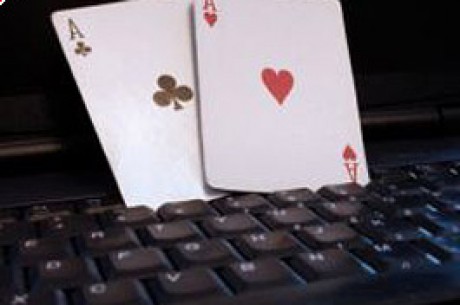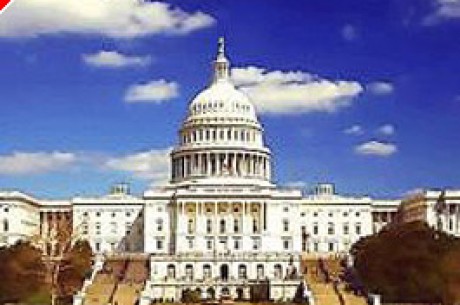Hypocrisy In The Sports World Regarding Online Gaming And Poker?

While sitting back the other night watching the National Hockey League playoffs, I was intrigued not by what I saw on the ice but by what I saw around the rink. The game, featuring the visiting Ottawa Senators against the Tampa Bay Lightning in Tampa, FL, was a good game, but I scanned the dasher boards surrounding the ice and noticed something more interesting than the game. The advertisements there not only featured local, regional and national companies but also prominently featured a block of advertisement for an online casino, GoldenPalace.com.
This got me thinking back to the legislation in Washington that recently came up and how it was touted that the major sports organizations were firmly behind the legislative efforts to ban Americans from wagering on sports, playing poker and entering the casinos of the Internet. During that time it was stated that "all" the major professional and collegiate sports leagues were supporting these efforts, including the National Football League, Major League Baseball, the aforementioned NHL, the National Basketball Association, and the collegiate governing body the NCAA. My question is: Why the hypocrisy?
To commemorate the start of the 2006 baseball season, the Massachusetts Lottery introduced an instant scratch off game that featured the logo of the Boston Red Sox, which not only the team but also Major League Baseball has the rights to. There is also talks ongoing with MLB to take these types of lottery games to other locales that have professional baseball teams as well.
In the National Basketball Association, a team in the playoffs right now, the Los Angeles Clippers, has advertising around the arena from ActionPoker.com and the site is mentioned by the courtside announcer as well. This year in the Arena Football League the Austin Wranglers also have accepted advertising from AlamoPoker.com. This doesn't even step into the "fantasy" sports world, where many spend money to be eligible to purchase the players for their "teams" and win sizeable prizes. There are also ways you can play in certain pool games for cash, such as for the NCAA basketball championship. The fascinating thing about all of this is that you don't see or hear how the major sports leagues are preventing these things from happening.
If the professional sports leagues were truly ingenuous about being against Americans being involved in the Internet action in casinos, sports books and card rooms, wouldn't they also prevent the advertisement of such organizations at their own teams' arenas? Wouldn't they stay away from entering into the lotteries of states with tickets that feature their particular leagues teams and/or logos? It seems to me that these groups are more interested in preserving their own marketing and their own online activities than they are in being against the thought of online wagering.
Fantasy football, basketball and baseball leagues have operations set up by their respective professional governing groups and, while all have a free way to play the game, they also offer leagues where the competition is on a "pay to play" basis. They also have marketed this to other companies so that these fantasy competitions have an official "seal of approval" from the respective professional organization involved, which also ensures that they are getting a cut of the action. This to me is a definitively two faced approach to the online gaming question, where at one side they rail against the issue but also take in money from participating in the same activity or advertising it themselves.
All of this only proves that the American professional sports establishment has no more interest than the bottom line in preventing Americans from going online to play poker, put a marker down on a game or spin the virtual Roulette wheel of a casino. They are being hypocritical in promoting a bill to prevent United States citizens from these actions while at the same time promoting these same business enterprises either in their arenas or outright through their own actions. Until I see some action from the professional sports world that can correct this juxtaposition of ideas, then I don't have much faith in their supposed support of the actions in Washington, DC regarding the prevention of Internet wagering.
Ed Note: Poker Stars have our highest rated tournaments, find out why








